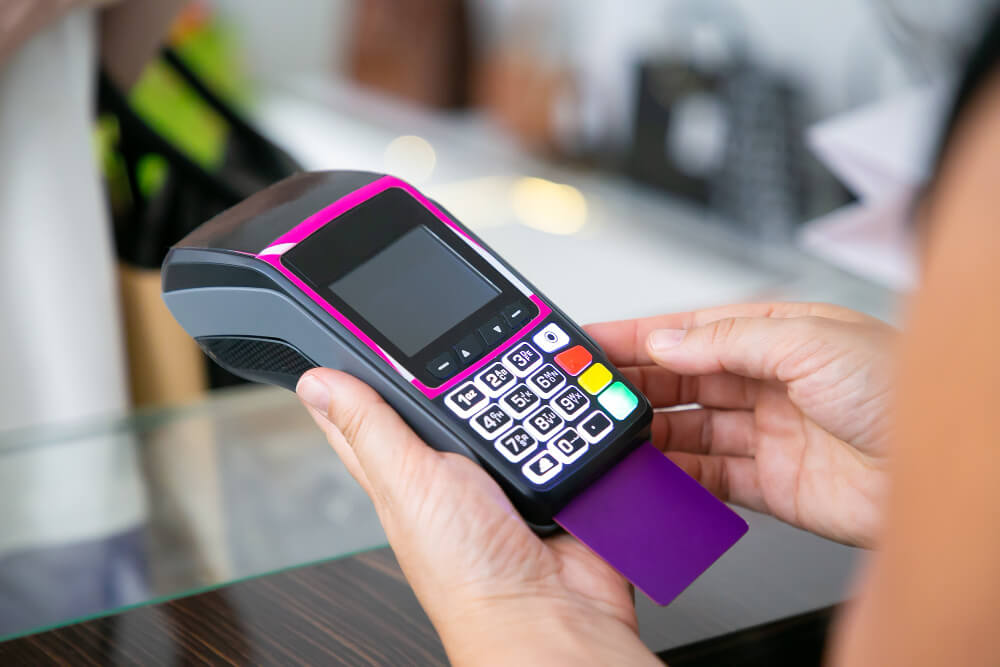
Businesses, both large and small, are recognizing the importance of staying ahead of POS technology trends to enhance their operations, improve customer experiences, and remain competitive.
In 2024, several key trends are expected to shape the future of POS systems. In this article, we explore emerging trends and innovations that businesses should be aware of to leverage the full potential of their POS solutions.
Trend 1: AI and Machine Learning Integration
Artificial Intelligence and Machine Learning are set to innovate POS systems. These technologies can provide well-organized customer experiences, optimize inventory management, and enhance decision-making processes.
For instance, AI-powered POS systems can analyze customer purchasing behaviors to suggest products and promotions tailored to individual preferences. Machine learning algorithms can predict sales trends, helping businesses stock inventory more efficiently and reduce waste. The integration of AI and ML in POS systems will enable businesses to offer more personalized and efficient services.
Trend 2: Mobile and Cloud-Based POS Systems
A key trend for 2024 is the migration to mobile and cloud-based POS systems. They offer flexibility, allowing businesses to process transactions anywhere, anytime. Mobile POS systems are particularly beneficial for small businesses and startups due to their lower upfront costs and ease of use.
Cloud-based POS systems provide the added advantage of data accessibility from any location, ensuring business continuity and facilitating remote management. As the demand for flexible and scalable solutions grows, mobile and cloud-based POS systems will become increasingly prevalent.
Moreover, businesses that offer an online booking service can integrate these POS systems to manage reservations and payments with ease, providing customer convenience and operational efficiency.
Trend 3: Enhanced Security Features
Security continues to play a key role in evolving POS. As cyber threats become more sophisticated, POS systems will be equipped with advanced security features to protect sensitive data in 2024.
This includes end-to-end encryption, tokenization, and multi-factor authentication. Enhanced security measures will help safeguard against data breaches and fraud, giving both businesses and customers greater peace of mind.
With regulation becoming more strict, putting robust protections in place will be critical for companies to save their reputations and avoid costly fines.
Trend 4: Omnichannel Capabilities
Customers expect seamless shopping experiences across various channels. Future POS systems will need to support omnichannel capabilities, integrating online and offline sales channels. This trend will allow businesses to provide a consistent customer experience, whether customers are shopping in-store, online, or via mobile apps.
For example, an advanced POS system might enable customers to purchase online, pick up in-store, or return items bought online to a physical store. By offering integrated and flexible shopping options, businesses can meet customer expectations and enhance satisfaction.
In 2024, the spread of contactless payments and digital wallets will continue its growth path. The COVID-19 pandemic has boosted the move to non-contact operations, and this trend shows no signs of slowing down.
Future POS systems will need to support a variety of digital payment methods, including:
- NFC payments;
- QR codes;
- digital wallets like Apple Pay and Google Wallet.
The convenience and security of contactless payments make them an attractive option for both businesses and consumers. As these payment methods become more mainstream, POS systems will need to adapt to support them seamlessly.
Trend 6: Advanced Data Analytics
Data analytics is becoming an integral part of modern POS systems. In 2024, the focus will be on leveraging advanced analytics to gain deeper insights into business performance and customer behavior. POS systems with integrated analytics capabilities can provide real-time data on sales, inventory levels, and customer preferences.
This information can be used to make informed decisions, optimize operations, and create targeted marketing campaigns. Advanced analytics will enable businesses to uncover trends, identify opportunities, and improve overall efficiency.
Trend 7: Customizable and Modular POS Solutions
The need for customized and modular POS solutions is becoming more and more evident as businesses grow. Future POS systems will have more flexibility, allowing businesses to adjust their POS setups to meet specific needs. Modular systems enable businesses to add or remove components as required, ensuring that the POS system grows alongside the business.
Customizable software solutions will allow businesses to integrate specific features and functionalities that align with their unique workflows. This adaptability is crucial for businesses looking to remain agile and responsive to market changes.
Conclusion
The future of POS technology is set to be dynamic and transformative, driven by advancements in AI, mobile technology, security, and data analytics. Businesses that stay ahead of these trends will be better positioned to enhance their operations, improve customer experiences, and achieve sustainable growth.
Businesses can unlock the full potential of their POS technology by integrating AI and machine learning, adopting mobile and cloud-based solutions, enhancing security, using advanced data analytics, and opting for enhanced and modular POS systems.
For those looking to build their own POS system, it’s essential to consider these trends and ensure that the chosen solution is suitable to future advancements.
Companies that actively pursue these innovations will stand out in an increasingly competitive marketplace. Keeping up to date and being adaptable is the key to reaping the benefits of advanced POS systems and ensuring long-term success.
